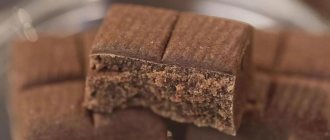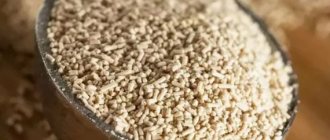Hypertension is a very common disease, especially severe in people who are overweight, lead an unhealthy lifestyle, and have little physical activity. The pathology manifests itself as sudden jumps in blood pressure, tinnitus, increased heart rate and headaches; such symptoms are unpleasant and dangerous to health.
In pursuit of a way to lower blood pressure (BP) without drugs, people turn to herbs, teas and herbal decoctions, especially in the initial stages of hypertension, when such methods can still cope with the first symptoms. Today we need to find out which tea lowers blood pressure, because today there is a wide selection of varieties and types of drink, and each of them has its own taste and properties. And also figure out whether different types of tea contribute to an increase or decrease in blood pressure levels.
How did green tea first appear?
Based on legend, tea was first discovered by a Chinese traveler almost 3500 thousand years BC. He wandered the world in search of healing herbs with a cauldron in which he heated liquid for infusions, and somehow tea inflorescences suddenly appeared in the container. The product invigorated, energized and gradually began to spread throughout Asia. Previously, it was used for medicinal purposes, but over time, tea ceremonies were organized for meetings with friends. New types of products and unique methods of processing tea appeared - for example, the leaves were fried with rice. In some countries, green tea is not only consumed in liquid form, but also added to food. Russia is in 4th place after China, India and Turkey in the use of tea. The product has a large number of valuable characteristics, since there is no multi-stage processing. The leaves are collected, dried, rolled and the oxidation process is quickly stopped, without bringing it to the state of black tea.
Does green tea raise or lower blood pressure?
Many people are interested in whether green tea increases or decreases blood pressure ? In this article we will examine this issue in detail.
Increases
Effect of caffeine:
- A person gains strength.
- His mental activity increases, his nervous and autonomic systems are excited.
- Drowsiness goes away.
- The body becomes more resilient and tolerates physical activity more easily.
- Fat is burned.
- It always increases blood pressure.
Since black tea contains caffeine, it increases blood pressure. Therefore, hypertensive patients should be careful: they should not drink this drink too often. It is even useful for hypotensive patients whose blood pressure is low. It raises blood pressure, which makes a person feel better.
Useful qualities of the drink
The product includes many useful qualities. The most common of them is considered to be antioxidant. Thanks to this, it affects the entire body. Frequent use improves skin quality and general condition. For colds and general poor health, green tea removes harmful compounds from the body, improving metabolism. The product also has an anti-inflammatory effect. It gives energy, eliminates apathy and depression, and relieves sleepiness. Therefore, it is extremely useful to consume it in the morning. Iodine and fluorine present in the composition neutralize heavy metal salts. The diuretic property of the drink eliminates swelling and removes excess water from the body, making the course of diseases of the genitourinary system easier. What inexpensive tablets can be found for high blood pressure, but are effective ? A free way is to drink green tea. It has a beneficial effect on the heart and blood vessels. In small doses, it reduces blood pressure in those who suffer from hypertension, and also reduces the risk of fatty plaques forming on blood vessels, increasing the strength of vascular walls. Iced green tea increases or decreases blood pressure – we’ll find out further.
Water
Clean water is one of the important ways to regulate blood pressure. Dehydration has a very bad effect on overall well-being, in particular on blood pressure. But drinking clean water in the required amount (usually this norm is 30 ml per 1 kg of body weight) helps stabilize blood pressure, improve the functioning of the cardiovascular system, and improve the process of hematopoiesis.
You can add a slice of lemon to a glass of water. This fruit contains potassium and magnesium. The last element helps relax muscles and improves blood circulation.
It is forbidden to make mistakes. How to measure blood pressure correctly Read more
Is green tea harmful?
In large dosages, tea is harmful, especially to people with high blood pressure or those who are prone to nervous system agitation. You should drink no more than 6 cups of tea without sugar per day.
Theine, the caffeine in tea, has a stimulating effect, so you shouldn’t drink a lot of liquid at night: you may experience insomnia. Polypherols contained in the product suppress liver function in large dosages. Excessive amounts of tea lead to migraines, dizziness and shaking of the limbs.
beneficial properties of green tea
Use of green tea in medicine
The benefits of green tea have been officially proven in medicine. For example, when studying radiation therapy, it was found that adding polypherols from green tea 30 minutes before the session greatly reduces its effectiveness. Green tea increases the body's resistance to various radiations and combines free radicals, which are considered one of the causes of premature wear and tear of the body. The multi-component effect of substances from the drink on cancer cells has been proven. It blunts their spread and destroys cancer cells. But no medicines based on green tea extracts have yet been developed. For now, the extract is used as part of other medications. Patients with high blood pressure and heart disease felt better when they used dietary supplements with green tea extract in their food. Tea reduces blood sugar levels, which is beneficial for the health of diabetics.
The product is also actively used in cosmetology as extracts in masks and creams. At home, wipe the face with liquid, this removes inflammation, dryness and age spots.
Substances in green tea that affect blood pressure
The product contains substances whose effects on blood pressure are strongly pronounced - caffeine and catechin. The first is considered one of the main elements present in the product. It contains much more caffeine than coffee. This drink helps to invigorate the nervous system, so people suffering from central nervous system diseases may experience difficulty sleeping and impotence for no apparent reason. You should not drink green tea before going to bed - insomnia will certainly appear. So, does green tea raise or lower blood pressure ? It is contraindicated for people with increased heart rate and high nervous agitation. But the polyphenol catechin has other qualities. It is also present in the drink and is one of the valuable components. It is what tones up the functioning of the heart and blood vessels, improves blood flow and maintains the desired blood consistency, which prevents the occurrence of fatal blood clots.
Fruit juices
Pineapple juice, which contains a lot of potassium, is considered very beneficial for blood vessels and blood circulation. But it is better to be careful with it, since pineapples are contraindicated for people with chronic diseases of the gastrointestinal tract. And even if there are no such diseases, gastroendocrinologists recommend diluting it and drinking it in small portions throughout the day, but not more than 1 glass.
Pomegranate juice is used to fight arterial plaques, watermelon juice fights dehydration and improves kidney function, apple juice tones veins and blood vessels, grape juice improves metabolic processes in the body.
Important! Note that drinks have a positive effect over time. That is, to achieve visible improvements, you need to drink tea with hawthorn for at least a couple of months.
There are contraindications. Be sure to consult your doctor.
How does green tea affect blood pressure?
Does hot green tea raise blood pressure or lower it ? It is catechins that gently lower blood pressure, so the drink can be considered a productive remedy in the treatment of hypertension: it improves blood circulation, widens blood vessels, relieves migraines and ringing in the head. There is a feeling of lightness. Often, hypertensive patients who have suffered from the disease for many years note that frequent consumption of green tea improves their condition and normalizes blood pressure.
Green tea increases or decreases blood pressure , the answers in our article. The most effective natural remedy that normalizes blood pressure in hypertension is the drug Tonosil. It is created on the basis of organic substances. This is one of the few remedies in Russia that actually improves blood pressure, protects hematopoietic vessels and is safe for health, since it is made only from natural substances.
effect of green tea on blood pressure
Also, frequent consumption of green tea greatly improves vascular flexibility and lowers blood cholesterol. All this reduces the risk of cardiac collapse. Let's give an example - the Japanese, who rank first in the use of green tea, and last in high blood pressure. If you suffer from high blood pressure, you are unlikely to be able to improve your condition with just one cup. It is better to consume up to 5 cups per day. Thus, the main effect of green tea on blood pressure is to reduce blood pressure and stabilize it.
Chinese
Real Chinese tea that normalizes blood pressure belongs to the varieties Shu Puer, Shen Puer, green, red, Da Hong Pao. The drink is indicated for consumption even during pregnancy, since at this time blood pressure levels often increase, swelling occurs, and dizziness develops. Shu Puer tea does not easily reduce, but stabilizes blood pressure - with reduced levels, headaches are eliminated, cheerfulness comes, blood vessels dilate, and relief occurs.
To keep your blood pressure levels under control, it is better to choose green varieties of Chinese tea and brew it according to the following rules:
- drain the first brew, use only the second;
- brew tea with slightly cooled water after boiling;
- steep the tea for no more than 3–5 minutes;
- use the brewed portion at least 3 times.
Chinese varieties of tea do not pose a threat to health; on the contrary, its consumption helps to stabilize blood pressure, increase the body's resistance, and relieve symptoms of hypertension - headaches, fatigue, tinnitus, and weakness.
Among the variety of tea varieties, everyone can choose the one that suits their needs and symptoms - to relieve signs of hypertension, high blood pressure, and get rid of fatigue. A properly brewed drink helps strengthen the walls of blood vessels, improves the functioning of the heart muscle, stabilizes blood pressure and improves well-being. Before choosing and brewing tea, you should consult a doctor and study the rules for preparing the drink. So that it brings health benefits, is aromatic and tastes good.
Tips for taking green tea
Now you know whether strong green tea increases or decreases blood pressure . You should not self-medicate and drink uncontrollably. A couple of glasses a day is enough for all the healing qualities to manifest themselves. Also, do not forget that green tea increases the acidity of gastric juice, so you should not drink it on an empty stomach. Take green tea with caution if you have joint pain. People with acute hypertension should not indulge in green tea. In particular, you should not drink strong drinks before going to bed. Before drinking a cup of green tea, measure your blood pressure. And never leave already prepared tea for later. Only a freshly brewed drink has benefits.
Does green oolong tea raise or lower blood pressure - we've given the answer. It is necessary to maintain the golden mean and not use green tea as a panacea for all diseases. It should be pleasant and tasty and be an addition to the main therapy that the doctor should prescribe. In persistent situations of increased blood pressure, consult your doctor for advice and appropriate research.











